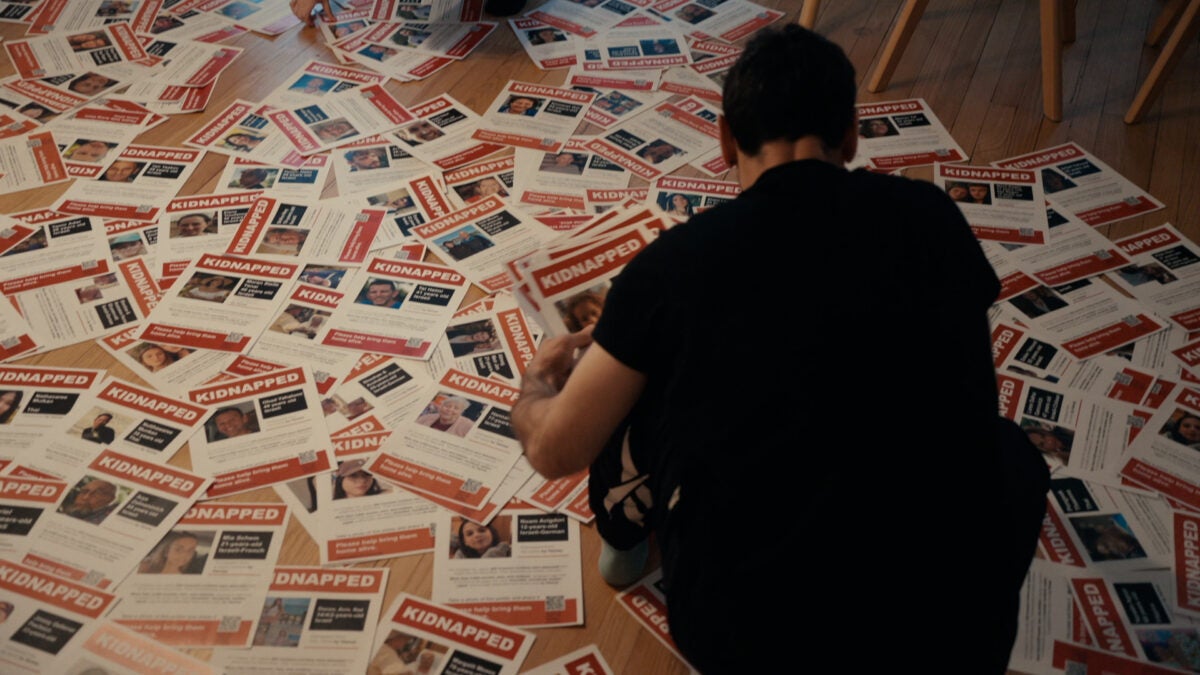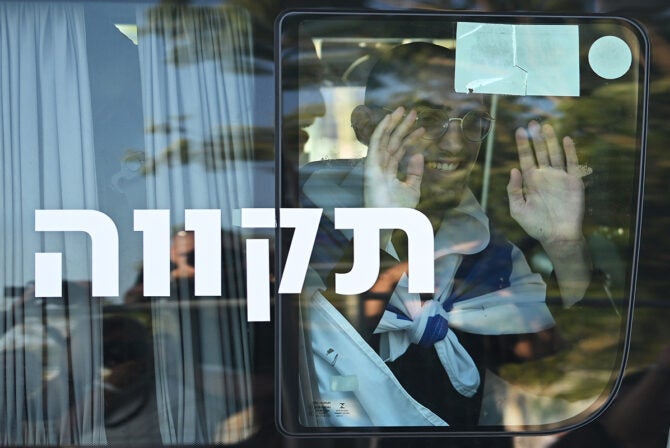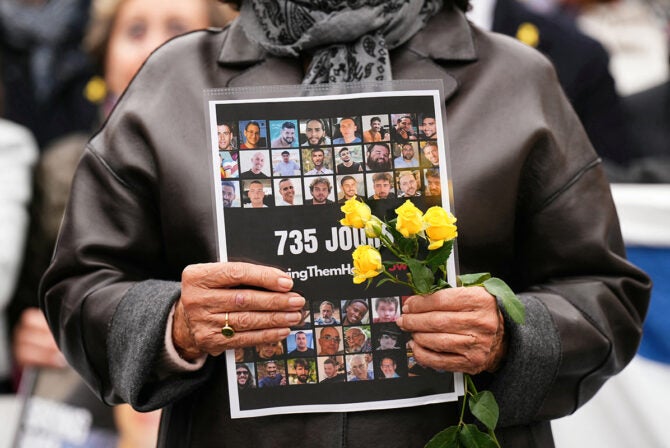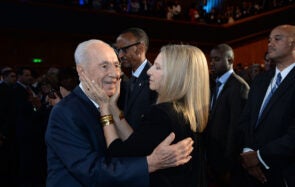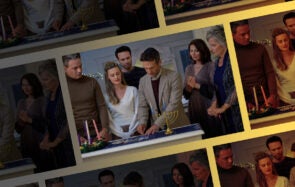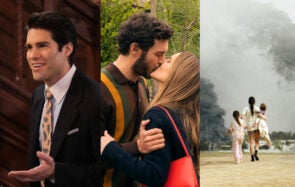I remember the first time I saw the “kidnapped” posters for the Israelis and other foreign civilians taken hostage to Gaza on October 7. It was in the first days after the attack, when we still weren’t sure who was kidnapped or who was killed; only two years later do we really know the tally of the living and the dead.
Created by artists Nitzan Mintz and Dede Bandaid, I saw the posters for the first time not on walls, but online, shared in a Dropbox folder, with an urgent plea to spread them far and wide. As an Israeli, I saw them as a way for all of us to deal with the overwhelming helplessness that we felt in that moment. Especially for those of us Israelis abroad, the posters felt like a way to do something concrete and real for our compatriots who were despondently searching for their loved ones. They seemed like a human gesture of solidarity, not a political one.
But that’s not how everyone saw them. Soon, the posters became another “battleground” in which to litigate the Israel-Hamas war. This battle was between those putting up the posters and those who, over and over, would tear them down.
Filmmaker Nim Shapira deftly wades through that battleground in “Torn,” now available on VOD. He brings to the fore the voices of people who created the posters, Bandaid and Mintz, who at the time were in New York for an artist’s residency. He talks to Alana and Liam Zeitchik, whose cousins Sharon Cunio and Danielle Alony were kidnapped with their young children, and with Sharon’s husband, David Cunio; they show the harrowing messages they got from Sharon that day. He talks to Julia Simon, a friend of hostage Omer Neutra, and others who felt drawn to put the posters up — and at times document those tearing them down — for their own personal reasons.
And, without getting them to speak to him in the same way as those who put the posters up (since none of them agreed to go on the record for the documentary), Shapira also manages to bring the voices of those who tear them down into the film, through excerpts from interviews they gave to the media and through e-mail correspondences with some of them. He shows people like Hasan Piker, an online streamer, influencer and left-wing political commentator, and activist Rafael Shimunov, who call the posters provocation and propaganda. He shows interviews with students who were publicly shamed for removing a poster. He also doesn’t shy away from showing the heartbreaking reality of the war in Gaza.
The nuance of this documentary comes from those media excerpts but also from Shapira’s own subjects, who bring both vulnerability and infinite wisdom. They are not attempting to excuse or minimize the suffering of Palestinians, for the most part, and don’t simply recite all the talking points we’re used to hearing. Instead, they bring their own, smaller truths. The posters mean something to them because of the kinship they feel with the faces and the stories behind them. They make them feel less helpless, less alone, less unmoored in grief.
Today, finally, after two years, we don’t need these hostage posters anymore. And yet the question at the heart of “Torn” remains and is perhaps more pressing than ever. Is there room in this world for acknowledging suffering beyond a binary?
The internet, and maybe even the battle itself over these posters, seems to suggest the answer is no. But in “Torn” we can, maybe, find a blueprint for how to create a world that can honor multiple truths at once.
When I asked Shapira how the current moment — with a ceasefire holding and the hostages returning home — impacts the way audiences will view his documentary, this is some of what he shared:
“The ceasefire changes the emotional context around ‘Torn,’ but it also brings its meaning into sharper focus. Until now, the film’s impact work was about urgency — freeing hostages, amplifying grief, calling for an end to the violence. Now it feels like we’re entering a new, more fragile chapter: one that asks how we live after it all.
The war may have paused, but the emotional wreckage remains — the mistrust, the exhaustion, the way people stopped listening to each other. The posters are gone, but the fractures they exposed are still here. What’s left to rebuild isn’t just physical — it’s social, emotional, civic.
‘Torn’ doesn’t prescribe how to fix that. It doesn’t offer answers or solutions. It simply asks: How do we begin again?”
JTA, the news branch of 70 Faces Media, will host a special screening of “Torn,” along with a director Q&A, on Oct. 16 at 7 p.m. ET. You can register for the event here.
